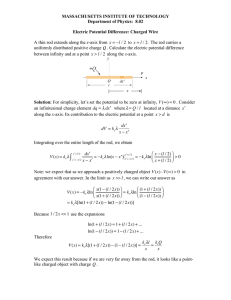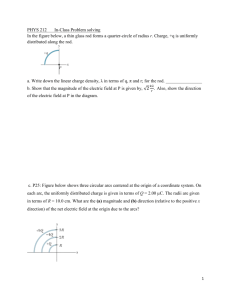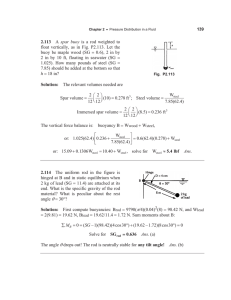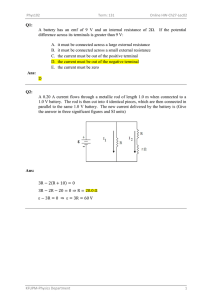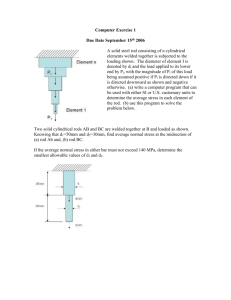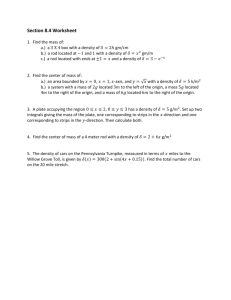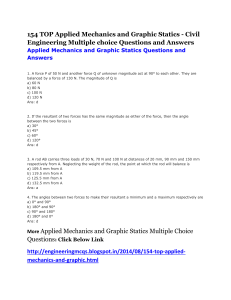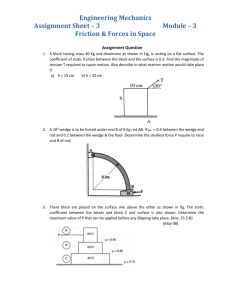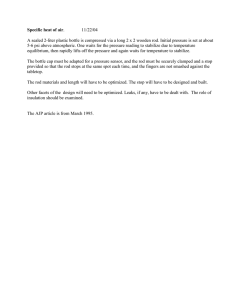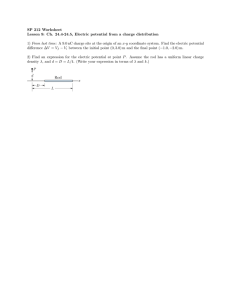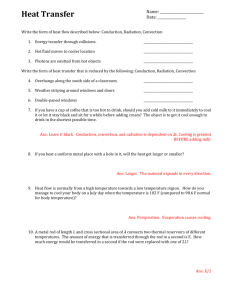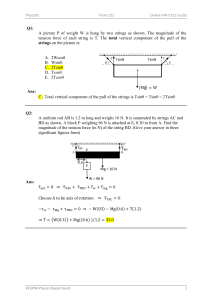Phy 132 - Assignment 6 A.
advertisement
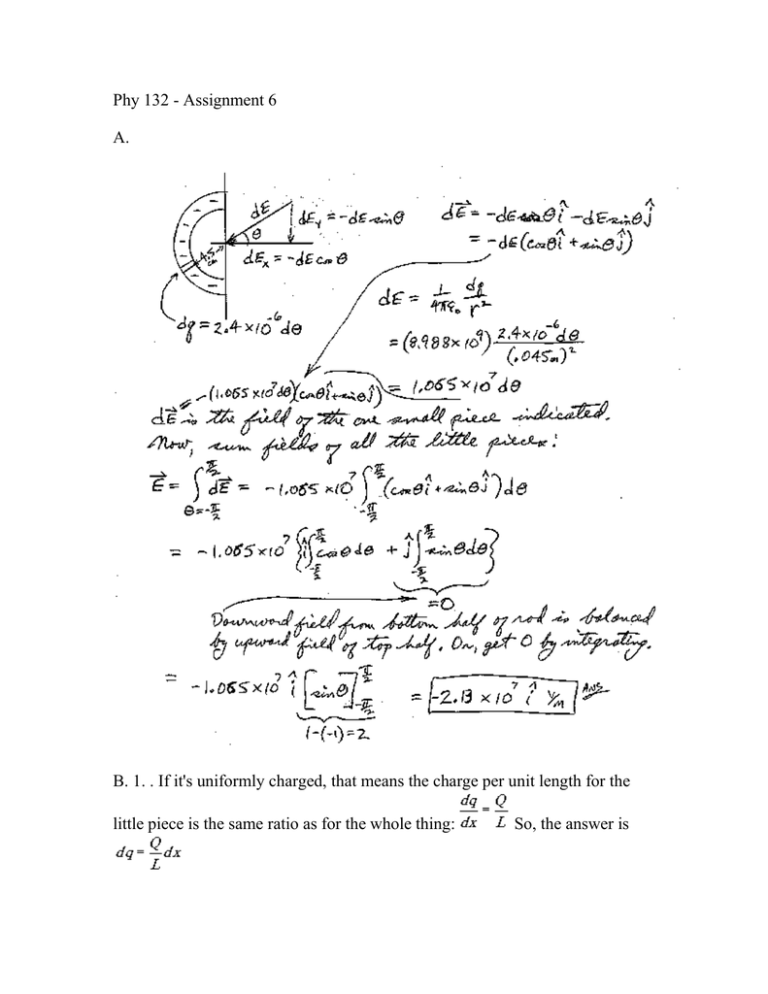
Phy 132 - Assignment 6 A. B. 1. . If it's uniformly charged, that means the charge per unit length for the little piece is the same ratio as for the whole thing: So, the answer is 2. C. 1. The charge per unit length for the little piece is the same ratio as for the whole thing: where ds is the length of the piece. Since ds = r dθ, . So, the answer is 2. D. Field of one small piece of the rod, such as the one shown: It points left because we assume the rod to be positive. (If the rod was actually negative, that would be taken care of by λ being negative.) Field lines point away from a positive charge. Since λ means charge/length, λ = dq/dx. (dq =charge of the little piece, dx = its length.) Therefore, dq = λdx. Filling in the expression given for λ, dq = (λoxo/x)dx Put that dq into the expression for dE, then integrate. (Add the fields of all the little pieces.): ans. (Of course, you're not really supposed to treat infinity like it's a number. You're supposed to say "the limit as x approaches infinity of one over x "….but you know what I mean.) E. The field of one little piece, such as the piece in the picture on the question sheet: Put in the substitution given for dq, and integrate: ans. F. The question doesn’t ask for this, but if you did evaluate those integrals, you get
